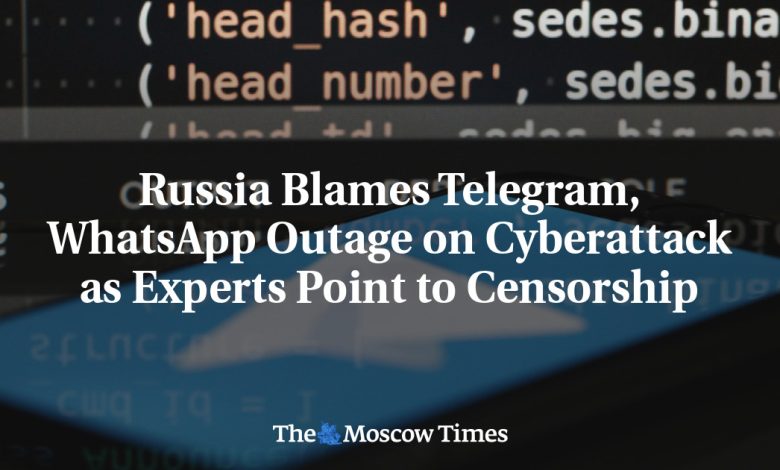Russia Blames Telegram, WhatsApp Outage on Cyberattack as Experts Point to Censorship

Russia said Wednesday that brief outages of Telegram and WhatsApp were caused by a cyberattack, while internet experts suggested that the authorities themselves may have attempted to block the popular messaging services.
Federal media regulator Roskomnadzor blamed the outage on a distributed denial-of-service (DDoS) cyberattack targeting Russia’s telecom operators.
A DDoS attack is designed to force a website offline by overloading it with malicious internet traffic.
Roskomnadzor said the “attack” that caused “large-scale disruption” to the services was repelled and normal service was restored within an hour.
But experts said that concurrent disruptions of other digital platforms like Wikipedia, Discord, Yandex and VKontakte, as well as outages in some Central Asian countries whose network traffic transits through Russia, indicate that Roskomnadzor itself may have been responsible.
“Roskomnadzor apparently tried to block Telegram, and then the blocking of Telegram disrupted other services on the [Russian internet],” Stanislav Shakirov, technical director of the independent digital rights organization Roskomsvoboda, told the investigative outlet Agentstvo.
“We saw the exact same thing happen in 2018,” Shakirov added, referring to the authorities’ unsuccessful attempt to block Telegram.
Filipp Kulin, creator of the Telegram channel Esher II, which tracks Roskomnadzor’s registry of blocked websites, dimissed the regulator’s claim of a DDoS attack as “complete nonsense.”
“It’s impossible to organize a DDoS on every operator. If that were the case, every operator would be down, not just selected services,” Kulin told Agentsvo.
When Russia designated Meta, the parent company of WhatsApp, as an “extremist” organization in 2022, it blocked access to Meta platforms Instagram and Facebook but did not block WhatsApp, which has over 80 million users in Russia.
The latest outages come amid accusations from activist groups that Moscow is intensifying internet censorship by blocking online platforms that carry critical information about the Kremlin or its invasion of Ukraine.
Authorities started clamping down on YouTube in recent weeks, with users in Russia reporting difficulties accessing the popular video-sharing site earlier this month.
AFP contributed reporting.





